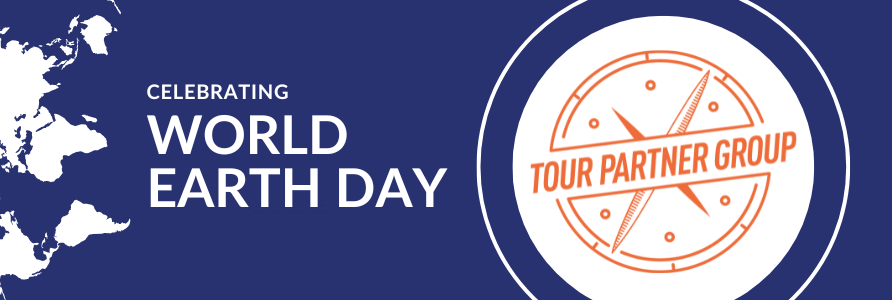
In celebration of World Earth Day 2025, we are delighted to spotlight some of our members who have placed sustainability and responsible tourism at the heart of their business.
Tour Partner Group is a collective of B2B DMCs operating across the UK, Ireland, the Nordics and the Baltic. Vera Lett, Group Marketing & ESG Strategy Manager, discusses why sustainability is a core focus for the business and the steps they are taking to become the leading sustainable DMC in Northern Europe.
What does sustainability mean to Tour Partner Group, and why is it so important?
For Tour Partner Group, sustainability means creating positive and conscious impacts on the environment, communities, and economies where we operate. It is embedded in what we do – from offering sustainable tours to setting internal policies around energy use, waste management, and community engagement. It is important because we believe that impact-conscious tourism is the only way to protect our destinations for future generations and meet the growing expectations of our clients, employees, and partners. Our vision is clear: to become the leading sustainable DMC for Northern Europe by 2025.
As a DMC operating in multiple destinations, how do you ensure that your ethos is applied across all your activities?
We apply a consistent ESG framework across all countries and brands. Our strategy revolves around the 3Ps – People, Profit, Planet – translated to our initials T.P.G (Transformation, People and Globe) to demonstrate that this is embedded in our DNA. It is integrated into every department, from HR to sales/account management to operations to supplier management. We use the B Corp framework, ensuring that our entire organisation is assessed against high social and environmental performance standards. In addition, we have introduced an ESG Supplier Code of Conduct and conduct supplier surveys to align our partners with our sustainability goals.
Can you share some practical examples of how your sustainability principles are applied?
- We collaborate with Ecologi to offset scope 1,2, and partially 3 emissions and support reforestation projects.
- We implement sustainable office practices by encouraging the use of our branded reusable water bottles and bags, reducing energy and water consumption, and eliminating single-use plastics. In addition, we have adopted digital business cards and transitioned to digital brochures wherever possible.
- We design travel programmes that encourage the use of impact-conscious travel options where possible.
- Our HR policies prioritise diversity, equity, and inclusion alongside employee well-being.
- We actively support local communities by sourcing local products and services and encouraging volunteer initiatives. We have added a volunteering day to everyone’s leave balance.
How do you measure the impact of your sustainability efforts?
We measure our impact through clear KPIs linked to our ESG goals. This includes tracking our CO₂ emissions (scope 1,2 and partially 3 – scope 3 to be included by Q3 this year), monitoring diversity and inclusion metrics, evaluating client, supplier and staff satisfaction, and ensuring compliance with our Supplier Code of Conduct. Our progress is transparently reviewed in Executive and Board meetings.
How do you educate and encourage visitors to be sustainable during their trips?
Whenever possible, we provide guests with sustainability tips before and during their trips, such as using reusable water bottles, respecting local communities, and minimising waste. Tour guides are encouraged to raise awareness during tours, and our travel programmes increasingly highlight impact-conscious options. We believe small changes in behaviour, multiplied by many travellers, can have a significant impact.
What can the industry do better to encourage and promote sustainable travel?
The industry needs to make sustainable options more visible and accessible. This means labelling impact-conscious tours, investing in low-carbon transport solutions, and working with local communities to develop tourism that preserves cultural and natural heritage. Strong collaboration across operators, suppliers, clients, and industry is key to changing mindsets and behaviours.
What government support does the industry need to ensure that sustainable travel becomes the norm?
Governments have a crucial role in accelerating impact-conscious travel by incentivising responsible practices, investing in impact-conscious infrastructure such as electric transport networks, supporting carbon offsetting initiatives, and establishing clear regulatory standards for sustainable tourism. In addition, targeted funding and educational campaigns are essential to raise awareness among travellers and businesses and enable companies to make necessary – and often costly – changes towards more sustainable operations.








